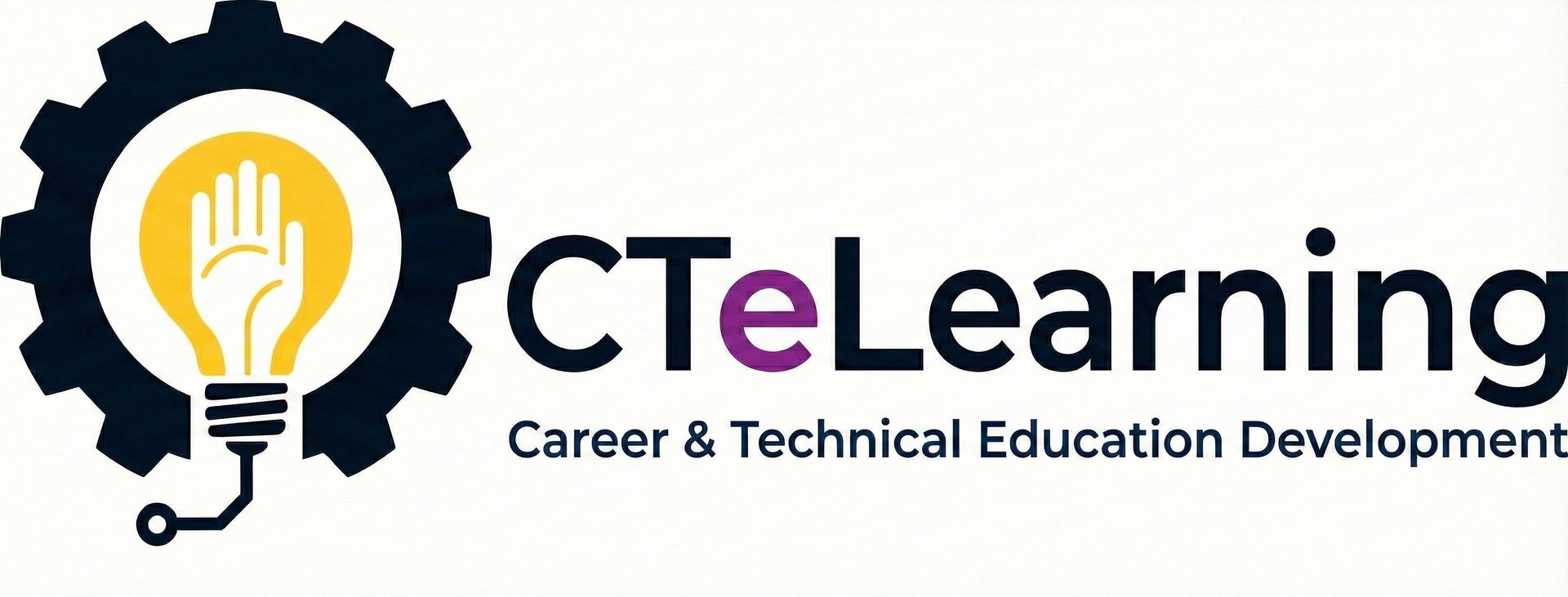Blog
Why Choose STEM? The Best STEM Careers for 2018
Did you know that the career choice you make will determine your financial future and overall lifestyle?
Of course you knew that! That’s why it’s important to be extra careful when choosing the career field you want to pursue. Some of the most in demand careers are STEM majors . You may have heard about various STEM careers and you may have done your own research as a result.
In this article we’ll help you learn more about STEM careers, and talk about some of the best majors you may want to consider for the future. Just read on to find out more!
What is a STEM Career?
So what exactly is a STEM based career? Why are they in high demand and what is required when you want to pursue one? The acronym “S.T.E.M.” stands for Science, Technology, Engineering, and Mathematics. In some cases, the “M” in STEM can represent Medicine.
Experts say that the demand for STEM careers will not only increase drastically the future, but will also help to boost the economy . One reason students are urged to pursue a career in STEM is that their meaningful work will help to touch and improve every area of our lives.
We have already seen a drastic shift in how technology has shaped our world. As a result, the practice of artificial intelligence, robotics, and cyber security have become critically important.
How Do STEM Careers Impact Our World?
These careers impact our lives quite a bit as you can imagine, but how do they influence our world? Consider the following:
- Science is all around us (health and fitness, dieting, animals, nature, and more)
- Technology controls our daily lives and it evolves every now and then (mobile devices, programming, game developers, web design, electronics, robots, and other smart devices)
- Engineering is all about the designs of buildings, bridges, roads, and other structures. It also solves the challenges of global weather changes and other changes of the environment around us (mechanical engineers, civil and structural engineers, electrical engineers, and more)
- Mathematics is typically in every activity or occupation we do in life. (Data analysts, bankers, statisticians, research scientist, actuary, data scientist, investment analyst, software engineering, and more)
STEM careers and the jobs they create produce innovations that drive our lives. We find new and more efficient ways to approach existing industries from plumbing to sustainable landscape design. STEM is important since it opens a wide range of career opportunities for students. There are many types of STEM jobs that are all in high demand, hence the chances of qualified candidates being hired will only increase. Most of all, students will feel like they are playing an important role in the innovation of our new world.
How Much Do STEM Careers Pay?
Now, this is a question every student would want to know. Most students pursue a specific career because it would give them a good income. This is not bad at all. If you choose a STEM career that you are passionate about , you’re sure to have a happy life since you’ll earn a great salary while doing what you love .
So, how much do the STEM careers pay? Well, this of course depends on the field that you choose to major. On average, the most STEM jobs pay a rough figure of about $65,000 per year . On the contrary, non-STEM majors pay an average yearly salary of $49,500. Keep this in mind!
Out of all the STEM categories, Technology and Engineering tend to have an upper hand when it comes to annual salary . Engineering and Engineering Technology careers pay an average salary of $73,700, about 13% more than the average. Computer and Information Science pay an average salary of $72,600, which is still really great .
On the other hand, physical and biological sciences, mathematics, science technology, and agricultural sciences pay around $50,400 on average. Regardless of the STEM career you pursue, you can be sure of having a higher salary compared to most non-STEM majors . You are also more likely to be working in exciting fields that produce the most innovation in the world.
Keep in mind that it’s not always about the salary, but doing what you actually enjoy. Luckily, there are plenty of careers in the STEM field, so you’re bound to find something you are passionate about.
Degree Requirements for STEM Jobs
Just like any other job, STEM careers also require a minimum level of education. Surprisingly, there are some STEM careers that don’t require a college degree. For instance, careers like Manufacturing Technician and welding will need an industry certificate or a 2-year degree.
On the other hand, the top STEM careers will require either a bachelor’s degree or an associate degree. For instance, careers like a dietitian, teacher, personal financial advisor, UX manager, and global marketing manager will need a bachelor’s degree.
However, careers like lab technician, radiologic technologist, registered nurse, dental hygienist, and nuclear technician require an associate degree.
Who is the Ideal STEM Major Candidate?
Other than considering the degree of the student, it is also important to mind the student’s personality. This is a deciding factor in why some people will be successful in a STEM career compared to others. Generally, there are no restrictions on who should and who shouldn’t pursue a STEM career.
Nevertheless, it is important that those pursuing a STEM related major possess specific personalities. For instance, STEM students are expected to be curious (having a will to learn) since they should have the urge of comprehending how stuff works . Unless a student is willing to get inside of the inner workings of a system, they wouldn’t understand how things work.
A STEM candidate should also be creative . These majors require people who will bring new ideas, solutions, and be unique with their approaches. If you are creative, you will have a better chance of solving problems . For that reason, STEM candidates / professionals should create, innovative, and invent solutions to complex problems.
Who Will Benefit From STEM Majors?
Typically STEM education is meant to bridge the gender and ethnic gaps , which are occasionally found in science and math fields. For instance, there have been plans to boost the roles of women and other minorities in STEM based fields.
With STEM, customary gender roles are broken, and it gives way to equality in every possible way . It isn’t just students that will benefit from STEM. Rather, the entire world will enjoy the new innovations that come from STEM careers. The more advanced the technology, the more of the worlds problems we can possibly solve .
The problems STEM based careers can solve include solutions to global warming, food production, sustainable energy, and even colonization of other planets .
Which Stem Careers are in Demand?
Some STEM majors that have a higher demand compared to others. In the 21st Century, STEM fields that are in high demand are scientific and technology based. The modern world depends on technology as we’ve mentioned a number of times in this article, and elsewhere .
Hospitals, governments, newsrooms, homes, and other workplaces depend on technology to communicate and run operations efficiently. That said, here is our STEM careers list for students that want to earn their major in the field.
1. Computer Engineering
This career is ideal for those that want to deal with computer hardware. Computer engineering is one of the highest-paying STEM careers in the current world since computers are all around us. You’re likely reading this through a computer/laptop. Even your mobile device is a mini-computer !
Computers come in all shapes and sizes, from the tiny computer in your smart watch to the computer found in a remote controlled crane .
These engineers are responsible for creating a wide range of computer equipment, and they will test and analyze the hardware that they have developed.
The median salary for computer engineers is around $111,700 .
2. Web Development/Design
Today, any brand, company, or organization that wants to reach out to the world via the internet must have an active and appealing website. A web developer can help the brand have a website that functions well, whereas the designer makes it look appealing.
You’ll need an associate’s degree to be a web developer or designer. A good web developer should be good with HTML, PHP, CSS, and Javascript . A good web designer should have a solid understanding of graphic design. To simplify your choice, a designer handles what you see on the front, and a developer takes care of the code that you don’t see in the back.
This is a competitive field that needs uniqueness and skillfulness. As a web developer / designer, you can expect to earn an average salary of at least $66,000 .
You can receive or help someone else a achieve a head start in this field by obtaining industry certification , even high school students. Get more information at course information page for Web Development and Design .
3. Architecture
You’re probably wondering how architecture falls on this list yet it isn’t exactly related to any of the STEM fields. Well, there are what’s called STEAM careers , which includes Arts (the A in STEAM represents Arts), and most times, STEM and STEAM fall into the same category.
Architecture depends on scientific laws that are combined with artistic design. As an architect, your unique designs will help you create commercial structures as well as domestic home plans. The real estate industry has been growing steadily in recent years. As a result, architects will definitely play a major role in designing residential and commercial properties for new land projects.
You can be sure of making a mean salary of at least $76,000 as an architect.
View the Building Green & Residential Architecture information to learn more about preparing yourself for the future of this field.
4. Information Security Analytics
Commonly known as cyber security , your job will be to protect companies and organizations from any cyber attack, and find exploits (back-doors). Typically, you will be expected to analyze, plan, and execute preventative security measures to the digital systems of the company/organization.
There are also it support and security companies that are looking for new candidates to help smaller businesses protect themselves.
These professionals are extremely high in demand because cyber-crimes have been on the rise in the recent years. Big companies hit recently include Target, Equifax, and most recently, the popular food chain, Chili’s . You’ll need to have a bachelor’s degree to be an information security analyst.
Can you help to quell cyber crimes taking place more and more in our world? The median salary is around $85,000 or more.
5. Petroleum Engineering
The 21st century depends a lot on energy. As much as renewable technologies have been on the rise recently, the petroleum industry still remains a significant field in the energy sector. That is why you should consider a career in petroleum engineering.
As a petroleum engineer, you are responsible for designing equipment that will be used to extract oil and gas. You’ll also learn to make more environment-friendly equipment.
The median salary for petroleum engineers is around $130,000 .
6. Mobile Application Design
Whether you call them Android designers, iOS designers, app designers, or mobile app designers, these professionals play a huge role in today’s world. Mobile application design is a vital STEM field since mobile devices are among the most-used gadgets in the current age. A huge portion of the population has likely used their mobile devices every day for years !
As an app designer, you will work along with user interface (UI) and user experience (UX) designers to apply their design to a mobile device’s interface. Here, you’ll also need to design unique mobile applications of varying uses. Always consider an app that helps solve a specific problem people may be facing.
Mobile app designers can earn an average salary of $65,000 a year.
7. 3D Modelling
These professionals are also called 3D printing engineers, and they are also highly demanded. 3D printing engineering is related to civil, electronic, and mechanical engineering. They can also be related to industrial design.
The 3D printing engineers use technology to bring objects and organs to real life. For instance, they can be responsible for designing organs for transplant in the medical industry.
These professionals earn an average salary of around $40,100
8. Robotics Engineering / Artificial Intelligence
Our future world is predicted to be controlled by robots, and understandably so. As mentioned in our unusual STEM careers article , robots will be used in multiple areas, replacing manpower with, well, robot-power. This isn’t a bad thing, or the script from a Hollywood movie, robots can make our lives easier and much more convenient.
For instance, automated welding systems and ATM machines are all robots or Artificial Intelligence equipment. There are robots developed to clean houses, help patients at hospitals, and even serve as personal assistants. Robotics engineering combines math, engineering, science, and some creativity.
As a robotics engineer, your job will be to create robots for use in selected areas. This career demands a master’s degree or Ph.D. in some cases.
You can earn around $94,000 a year after years of experience in the field.
If you’re looking for a way to learn, or easily teach your students about this subject early on, read about our hands on Artificial Intelligence and Mobile Robotics course.
9. Gameplay Engineer / Video Game Design
Video games have been on the rise , and they are not only designed for kids and young adults. Big video game companies such as Electonic Arts are reporting record profits. Even popular individual games such as Fortnite are reportedly making over $100,000,000 dollars per month ! No that isn’t a typo!
Video game designers dedicate their time and effort to come up with engaging software programs for video games. They are some of the most sophisticated software you’ll find anywhere.
Gameplay engineers must bring life to the game, which helps gamers to enjoy what they are playing, and want to play it again and again. This field requires gameplay engineers to be both creative and unique in their delivery. They introduce new concepts, and tie it all together by working closely with the development team.
This STEM field requires a bachelor’s degree, as well as some years of related work experience.
The best part of this field is that it is one of the highest paying STEM jobs . As a gameplay engineer, expect to make over $100,000 a year.
10. Statistics And Data
Statisticians are among the most active professionals in today’s world. They will collect information from clients, students, parents, government agencies, or other companies. Furthermore, these professionals will use a dense and complex amount of data to solve problems, analyze trends, and answer specific questions.
Actually, it’s statisticians that approximate the average salary of a specific career. To become a statistician, you will need a D egree in Statistics . This will help to develop your analytical and mathematical skills. If you are still in school, consider specializing and perfecting your abilities in math topics like calculus, probability, experimental design, and more.
This can leak over into the internet world too, as data and statistics are very important in the every day usage of the internet. Companies will hire SEO and internet marketing specialists to read and interpret data collected from a website. This helps them further optimize the client’s website to help increase website conversions.
As a statistician, you will expect to earn an average salary of at least $81,000 .
Other types of STEM jobs that pay well include Actuarial Science ($97,000) , Database Administration ($87,700) , Computer Programming ($97,530) , and Software Development ($100,700) . You can view some of the courses we have available to prepare you or your students for a career in STEM by viewing our STEM Courses List .

Which STEM Career Will You Pursue?
So, what STEM career will you choose to pursue? Do you prefer the technology / computer-based courses, math-related courses, science majors, or you want to go with the art-related courses? Whichever STEM career you choose, do your best to ensure that you make the right choice.
Go for the one that you have a passion for and can find enjoyment in. Remember that a wrong choice can negatively affect your lifestyle, even if it pays a lot of money.
Share To
Get in touch with us today!
You can book a demo directly using Calendly, call us directly at 913-764-4272 or 877-828-1216, or submit the form and we will reach out to you.
We look forward to helping you and your students.






